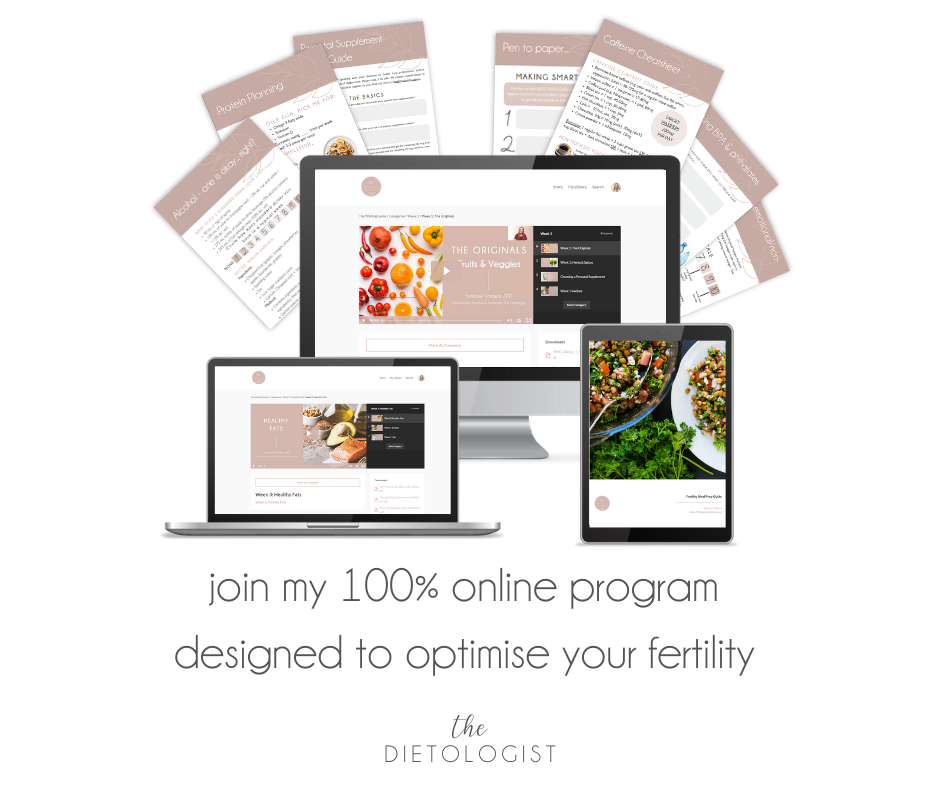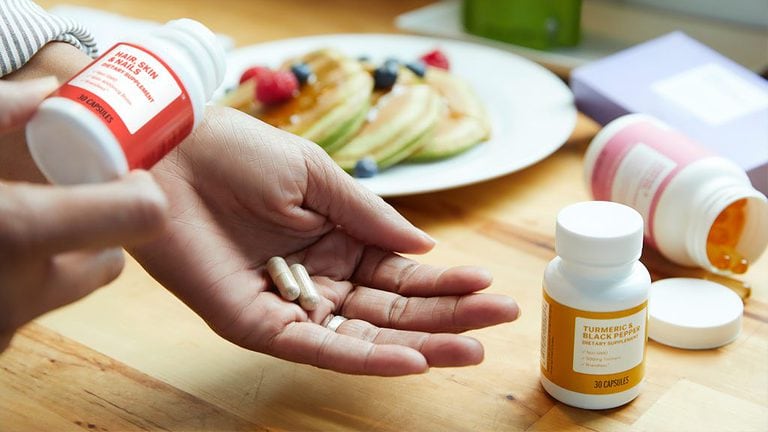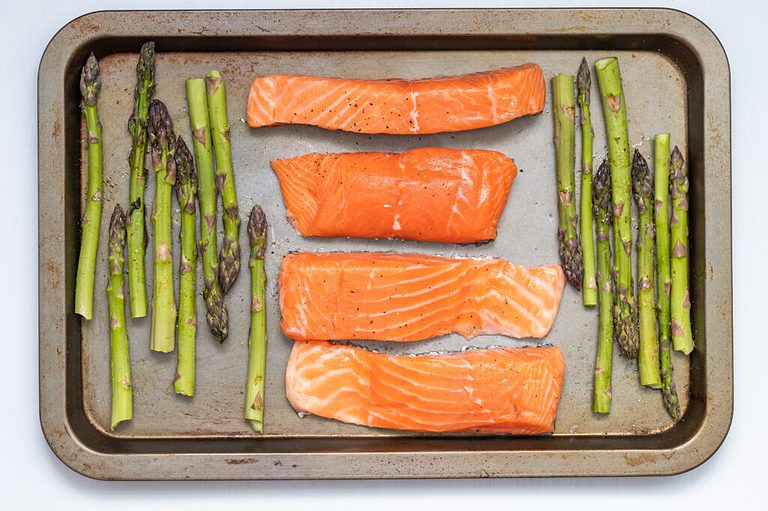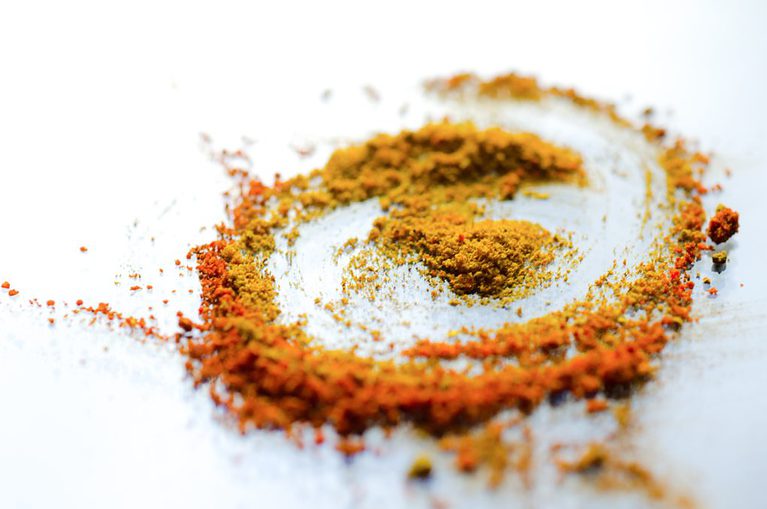So you’re planning on having a baby or maybe you’ve just found out you’re pregnant! Either way, congratulations, it’s an exciting time.
As a dietitian and nutritionist, I always advocate for food to be our main source of nutrients and working on your eating habits before pregnancy or throughout is always a great idea. However, I most definitely recommend a prenatal supplement to cover your bases to ensure you’re getting enough of some the key nutrients required for the development of a healthy baby.
Wherever possible, I recommend you start a prenatal vitamin 3-6 months before conception to build up sufficient nutrient stores. Sometimes this isn’t possible, so get onto it ASAP!
Many women struggle with choosing which prenatal supplement to go with, so here are some of the key things to look for when selecting a prenatal vitamin and mineral supplement.
NEED HELP CHOOSING THE RIGHT PRENATAL FOR YOU?
Get expert advice from a fertility and prenatal dietitian & nutritionist to tailor your regime to you in just 30 minutes, use the code PRENATAL10 to get $10 off your appointment, book now!
(1) Folate/Folic Acid
Folic acid is the synthetic form of the B-vitamin folate which is essential in the first 12 weeks of pregnancy as your baby develops its neural tube. This process can be occurring before you even find out you’re pregnant which is why it is so important to start your prenatal vitamins early!
Folic acid supplementation and fortification in our food supply (bread & cereal products here in Australia) has been shown to reduce the occurrence of neural tube defects like spina bifida.

With the rising awareness of the MTHFR genetic mutation (read more about it here), which in short results in a reduced ability to activate folic acid, you may want to err on the side of caution and look for a prenatal vitamin that contains activated folate. This is labelled as L-methylfolate or follinic acid.
Your folic acid requirements may differ if you have a family history of neural tube defects, have type 1 or type 2 diabetes, inflammatory bowel disease or have a high BMI.
(2) Iodine
Iodine is a key mineral before and during pregnancy. Iodine is responsible for preventing a severe condition called cretinism in your baby which results in a marked reduction in mental capacity as well as some physical abnormalities. Low iodine intake during pregnancy has also been associated with reduced IQ and academic ability in children.
Iodine is also found in seafood, fish and in iodised salt.
Your prenatal supplement should have at least 150 mcg (micrograms), ideally, it should contain 220 mcg.

(3) Vitamin D3
Vitamin D3 (or activated vitamin D) is a fat-soluble vitamin and is important in your hormone and immune function, cell division and bone health (for both you and your baby!). Vitamin D also aids in the absorption of calcium. There has been some research to show that poor vitamin D status has been associated with pre-eclampsia (high blood pressure) and increased risk of preterm labour as well as gestational diabetes.
Of course, getting vitamin D from the sun is a good idea with short and sensible sun exposure. However, if it’s winter (or even summer here in Australia), it can be hard to ensure you’re getting enough, which is where a supplement can come in handy.
There are two main forms of vitamin D. The vegetarian form is ergocalciferol and the animal-based form is known as cholecalciferol, this may be a consideration when looking for a supplement if you are vegetarian or vegan.
The American Pregnancy Association recommends that vitamin D3 should be supplemented in addition to your prenatal vitamin as most do not contain enough. Most on the Australian market contain up to about 1000 IU (international units). However, one study has shown that high dose (4000 IU) during the second and third trimesters showed no evidence of harm but reduced the rate of pregnancy-related complications by half compared to women on the lowest dose of vitamin D (400 IU). Read the study here: Hollis et al., 2011. Check your vitamin D levels with your doctor and discuss what may be an appropriate dosage for you before adding it onto your supplement regime.
(4) Omega-3 DHA
Omega-3 fatty acids, especially DHA (one of the marine-based sources of omega-3 fatty acids) are critical during pregnancy. And bonus, research has also found getting enough omega-3 fats increases your chance of conceiving too!
Pregnant women with a good omega-3 status have shown a reduced risk of going into early labour by a massive 10-fold! (Olsen et al.,2018) And omega-3 status have been associated with higher birth weight babies, compared to women who consumed more omega-6 fats (Meher et al., 2016).
DHA is responsible for baby’s brain, eye and nervous system development.

Australia’s recommendations is for 115 mg omega-3 fatty acids in total. However, the American Pregnancy Association recommends at least 300 mg DHA every day, so have a look on your prenatal vitamin for this dosage, or consider getting it from a separate supplement. Most on the Australian market don’t contain this level of DHA.
DHA supplementation is especially important if you are vegan or vegetarian or do not consume oily fish like salmon, trout or sardines (well-cooked when pregnant) 2-3 times per week.
Read more about omega-3s on my blog.
(5) Vitamin B12
Vitamin B12 (or Cobalamin) is found in any animal-based product or by-product (e.g. dairy & eggs). Whilst we don’t need too much of this vitamin for health, it is important for our nervous system and is involved in the metabolism of folate in the body, which is why it is important during pregnancy.
B12 helps with the formation of DNA and red blood cells and helps with brain and nervous system function.
On your prenatal supplement, look for vitamin B12 (cobalamin), in particular look for activated vitamin B12 (methylcobalamin).
If you take metformin or acid-suppressing medications for managing reflux, B12 may be particularly important. Check your B12 levels with your doctor, and speak to them about supplementation.
(6) Iron
Iron is another mineral which can tend to dip during pregnancy, especially during the second and third trimester as your blood volume rapidly increases to support your growing baby. Your iron needs almost double during pregnancy compared to non-pregnant women. If you’re vegetarian or avoid red meat, you may also need additional iron to meet your needs. It is wise to get your iron levels checked before conceiving to ensure you top-up your stores to avoid fatigue early on in the first and second trimester.
Women who take iron supplements have been shown to have a lower risk of ovulatory infertility (Chavarro et al., 2006). Rat studies have also shown a reduction in the ability to conceive when they were severely iron deficient (Li et al., 2014).
The tricky thing about iron supplementation is:
- Constipation is a common side effect, try and look for iron (as amino acid chelate) or ferrous glycinate to reduce the impact on your bowel actions.
- Iron is easily inhibited by other nutrients commonly found in multi-nutrient supplements like a prenatal, including calcium and zinc.
Sometimes, it is best to take your iron supplement at a different time of the day than your prenatal supplement. Look out for supplements that contain both calcium and/or zinc alongside iron as the absorption of iron will likely be affected.
For more about iron in fertility, pregnancy and for women, check out my blog post.
(7) Choline
Choline is almost like the new folic acid, and for good reason. This vitamin-like nutrient found naturally in eggs, meats, legumes & beans and mushrooms. Choline is responsible for baby’s neural tube development and brain development so is important during the early stages of pregnancy. Unfortunately, many prenatal vitamins on the market do not contain choline, so be sure to put some eggs on your plate and check your prenatal for this essential nutrient.

(8) Niacin (Vitamin B3)
Niacin (also known as vitamin B3) is important for foetal brain development and research has shown can help to reduce the risk of miscarriages so is critical nutrient in the first trimester. And bonus there has also been some research to show it can help reduce nausea and improve digestion, win!
You need about 18 mg of niacin (often labelled as nictoinamide or nicotinic acid) during pregnancy, and has now been added to many pre-natal vitamins. However, it’s important to not over-do it on the supplements. You can get niacin from lots of different foods including sunflower, chia seeds, tuna, turkey and beans among others.
(9) Other nutrients: Selenium, Vitamin K, Magnesium, Calcium
Some other nutrients that you may like to look out for in your prenatal vitamin, include: selenium, vitamin K, magnesium and calcium. Calcium requirements do not increase during pregnancy, however, it is important to be getting enough to maintain your own bone health and provide the materials to help build your baby’s skeleton too. Most prenatal vitamins do not contain enough calcium to meet your needs of 1000 mg/day, so be sure to include some calcium-rich food sources like dairy or fortified dairy alternatives, fish with bones and soy products to ensure you meet your daily needs.
Other Tips
- Be sure to take your prenatal vitamin with food to maximise absorption and reduce the risk of nausea.
- If you’re experiencing morning sickness, look for a prenatal with vitamin B6 & niacin, and try taking it with the meal when you feel less nauseous (e.g. if you feel the best in the evening, take your prenatal vitamin with dinner). This is to ensure that you get the most from it and do not lose all the nutrients when you – you know – lose it in the bathroom.
Please note: This blog is for general information purposes only and does not replace individualised advice provided to you by your doctor or dietitian.
Book an EXPRESS prenatal supplement selection consult with me today for personalised supplement recommendations for your needs, use the code PRENATAL10 to get $10 off (exclusive to blog readers!)
Ready to dive in and get clarity on your fertility friendly diet? Then join me online in my popular 4-week program, The Waiting Game, where I help women just like you transform their diet for optimal fertility. Start today and wave goodbye confusion and hello clarity and enhanced fertility! Join today.







